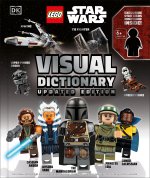
Kód: 04938500
Body of War
Autor Dubravka Zarkov
In The Body of War, Dubravka earkov analyses representations of female and male bodies in the Croatian and Serbian press in the late 1980s, and in early 1990s during the war in which Yugoslavia disintegrated. Earkov proposes that ... celý popis
- Jazyk:
 Angličtina
Angličtina - Vazba: Pevná
- Počet stran: 296
Nakladatelství: Duke University Press, 2007
- Více informací o knize

3375 Kč
Dostupnost:
50 % šance Máme informaci, že by titul mohl být dostupný. Na základě vaší objednávky se ho pokusíme do 6 týdnů zajistit.
Máme informaci, že by titul mohl být dostupný. Na základě vaší objednávky se ho pokusíme do 6 týdnů zajistit.Prohledáme celý svět
Mohlo by se vám také líbit
-

Berserk Deluxe Volume 1
1033 Kč -

Haunting Adeline
617 Kč -

Berserk Deluxe Volume 3
1138 Kč -

Berserk Deluxe Volume 2
1056 Kč -

LEGO Star Wars Visual Dictionary Updated Edition
545 Kč -

Atomic Habits
340 Kč -

Powerless
276 Kč -

Chainsaw Man, Vol. 15
251 Kč -

Harry Potter and the Prisoner of Azkaban (Minalima Edition)
978 Kč -

House of Leaves
541 Kč -

Berserk Deluxe Volume 5
1115 Kč -

Hunting Adeline
633 Kč -

Cry Baby Coloring Book
270 Kč -

Iron Flame
353 Kč -

White Nights
90 Kč -

The Official Stardew Valley Cookbook
607 Kč -

JUJUTSU KAISEN V22
241 Kč -

Gravity Falls Journal 3
430 Kč -

Heaven Official's Blessing: Tian Guan Ci Fu (Novel) Vol. 2
442 Kč -

Twisted Lies
276 Kč -

Berserk Deluxe Volume 4
1165 Kč
Darujte tuto knihu ještě dnes
- Objednejte knihu a zvolte Zaslat jako dárek.
- Obratem obdržíte darovací poukaz na knihu, který můžete ihned předat obdarovanému.
- Knihu zašleme na adresu obdarovaného, o nic se nestaráte.
Informovat o naskladnění knihy
Zadejte do formuláře e-mailovou adresu a jakmile knihu naskladníme, zašleme vám o tom zprávu. Pohlídáme vše za vás.
Více informací o knize Body of War
Nákupem získáte 338 bodů
 Anotace knihy
Anotace knihy
In The Body of War, Dubravka earkov analyses representations of female and male bodies in the Croatian and Serbian press in the late 1980s, and in early 1990s during the war in which Yugoslavia disintegrated. Earkov proposes that the Balkan war was not a war between ethnic groups; rather, ethnicity was produced by the war itself. Earkov analyses the process through which ethnicity was generated, showing how lived and symbolic female and male bodies became central to it. She does not posit a direct causal relationship between hate speech published in the press during the mid-1980s and the acts of violence in the war. Instead, she argues that both the representational practices of the "media war" and the violent practices of the "ethnic war" depended on specific, shared notions of femininity and masculinity, norms of (hetero)sexuality, and definitions of ethnicity. Tracing the links between the war and press representations of ethnicity, gender, and sexuality, earkov examines the media's coverage of two major protests by women who explicitly identified themselves as mothers, of sexual violence against women and men during the war, and of women as militants. She draws on contemporary feminist analyses of violence to scrutinize international and local feminist writings on the war in former Yugoslavia. Demonstrating that some of the same essentialist ideas of gender and sexuality used to produce and reinforce the significance of ethnic differences during the war have often been invoked by feminists, she points out the political and theoretical drawbacks to grounding feminist strategies against violence in ideas of female victimhood.
 Parametry knihy
Parametry knihy
Zařazení knihy Knihy v angličtině Society & social sciences Society & culture: general Social groups
3375 Kč
- Plný název: Body of War
- Podnázev: Media, Ethnicity, and Gender in the Break-Up of Yugoslavia
- Autor: Dubravka Zarkov
- Jazyk:
 Angličtina
Angličtina - Vazba: Pevná
- Počet stran: 296
- EAN: 9780822339557
- ISBN: 0822339552
- ID: 04938500
- Nakladatelství: Duke University Press
- Datum vydání: 03. September 2007
Osobní odběr Praha, Brno a 12903 dalších
Copyright ©2008-24 nejlevnejsi-knihy.cz Všechna práva vyhrazenaSoukromíCookies


 Vrácení do měsíce
Vrácení do měsíce 571 999 099 (8-15.30h)
571 999 099 (8-15.30h)